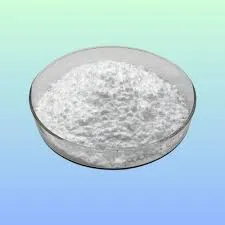
Ноя . 01, 2024 05:45 Back to list
Exploring the Benefits of Mortar Bonding Agents in Construction Projects
The Importance of Mortar Bonding Agents in Construction
Mortar bonding agents play a crucial role in the construction industry, serving as essential materials that enhance the adhesion between mortar and various substrates. These agents ensure that structures maintain integrity and durability over time, significantly impacting the overall performance of masonry and concrete applications.
What is a Mortar Bonding Agent?
A mortar bonding agent is a chemical formulation designed to improve the adhesion properties of mortar. When mixed with traditional cement, sand, and water, these agents create a paste that can bond more effectively to surfaces such as concrete, brick, stone, or block. Various types of bonding agents exist, including polymer-based products, which offer improved flexibility and strength, and acrylic emulsions that can enhance water resistance.
Why Use Mortar Bonding Agents?
The primary reason for using a mortar bonding agent is to enhance adhesion. Regular mortar may not bond well to certain surfaces, especially if they are porous, smooth, or have not been properly prepared. This can lead to weak joints that may crack or fail under stress, impacting the structural integrity of the entire construction. By incorporating a bonding agent, contractors can achieve a better bond, which translates to increased strength, reduced cracking, and longevity of the masonry work.
mortar bonding agent

Another significant advantage of using mortar bonding agents is their ability to improve the performance of mortar in adverse conditions. For instance, in climates with freeze-thaw cycles, a high-quality bonding agent can help the mortar withstand the stresses of expansion and contraction without compromising the bond. Additionally, bonding agents can provide improved resistance to water infiltration, thus protecting underlying structures from moisture damage.
Application and Best Practices
When applying mortar bonding agents, it's essential to follow the manufacturer's guidelines closely. Most products require that the surface be clean, free of dust, grease, and any other contaminants that might inhibit adhesion. The bonding agent is usually applied in a thin, even layer before the mortar is laid.
It's also vital to consider environmental factors such as temperature and humidity during application. Many bonding agents require specific conditions to perform optimally. For example, applying a bonding agent during extreme temperatures or high humidity may negatively affect the curing process of the mortar.
Conclusion
In conclusion, mortar bonding agents are a critical component in the construction industry, providing enhanced adhesion and improved performance for masonry structures. Their use not only increases the strength and durability of the bond between mortar and substrates but also offers protection against environmental factors that can lead to deterioration. As construction techniques evolve and the demand for high-performance materials grows, the significance of bonding agents will only continue to rise. Choosing the right mortar bonding agent and applying it correctly can result in a stronger, longer-lasting finished product—a win-win for both builders and property owners alike.
-
Versatile Hpmc Uses in Different Industries
NewsJun.19,2025
-
Redispersible Powder's Role in Enhancing Durability of Construction Products
NewsJun.19,2025
-
Hydroxyethyl Cellulose Applications Driving Green Industrial Processes
NewsJun.19,2025
-
Exploring Different Redispersible Polymer Powder
NewsJun.19,2025
-
Choosing the Right Mortar Bonding Agent
NewsJun.19,2025
-
Applications and Significance of China Hpmc in Modern Industries
NewsJun.19,2025







